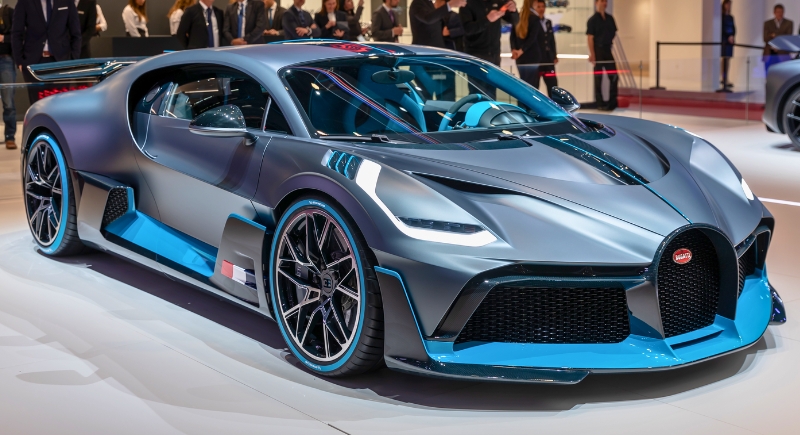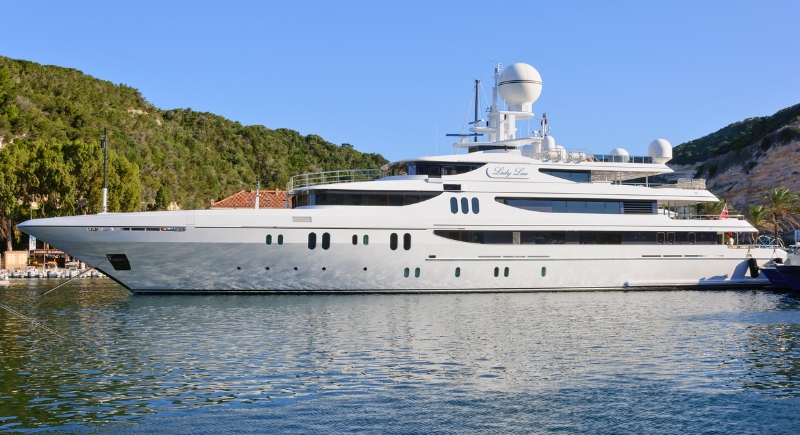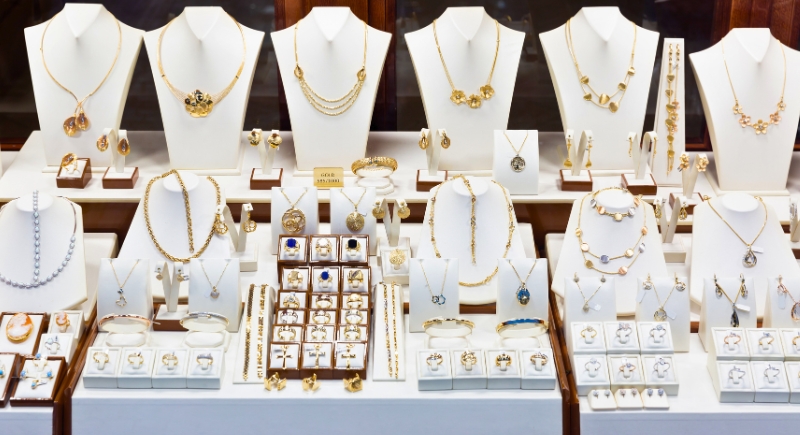8 Things the Ultra-Rich Buy That Destroy Their Wealth
At some point, spending stops being smart and starts being, well, just expensive. For the ultra-wealthy, certain purchases meant to showcase success end up quietly nibbling away at their net worth. These aren’t financial disasters—but they sure aren’t doing any favors by leaving behind little more than maintenance bills and awkward bragging rights.
Here’s a look at what some rich folks buy that ends up costing way more than it’s worth.
Supercars Built for Ego, Not Roads

Credit: Wikimedia Commons
They look fast even when parked, but parked is exactly where most of them stay. These high-performance beauties are more garage trophies than go-to rides. They’re pricey to insure, finicky to maintain, and their value drops faster than their 0–60 time. Plus, the attention they attract isn’t always admiration—it’s often confusion or judgment.
Mega-Yachts That Rarely Move

Credit: Wikimedia Commons
Owning a yacht sounds indulgent until you calculate the cost of crew, docking, and constant upkeep. Many end up being glorified party decks that rarely leave the marina. Even those who love boating often admit they’d be better off renting. The joke among boat owners isn’t far off: the best boat is someone else’s.
Cosmetic Work With Visible Regrets

Credit: Canva
There’s nothing wrong with a little refresh. But when plastic surgery goes from subtle to showy, the costs go beyond the bill. Efforts to fight aging sometimes result in an artificial appearance rather than a younger one. And unlike many luxuries, these changes are visible, and often irreversible reminders of buyer’s remorse.
Jewelry That’s Trying a Bit Too Hard

Credit: Getty Images
There’s a fine line between a tasteful statement piece and a walking security risk. Wearing flashy jewelry might feel like a declaration of wealth, but it often backfires. Over-accessorizing suggests a need for validation more than refinement.
Mansions That Can’t Function

Credit: Getty Images
Large homes can trap wealth in never-ending expenses: property taxes, repairs, insurance, and landscaping. Owners of sprawling estates may find themselves living in houses that require high maintenance just to function. And with a limited market for resale, that square footage quickly becomes a burden rather than a badge.
Live-in Staff Who Complicate Privacy

Credit: pexels
Hiring personal assistants, private chefs, and full-time drivers may simplify logistics, but they complicate personal life. Having people constantly around can make a home feel less like a sanctuary and more like a shift change. The payroll keeps ticking whether you’re home or halfway across the world.
Designer Closets That Age in Dog Years

Credit: Canva
Fashion trends move quickly, but luxury clothes rarely hold value. Many ultra-rich individuals stock their closets with items that are out of style within months. Unlike tailored classics, these pieces often don’t age well, either visually or financially. The closet might be full, but the ROI is empty.
Homes Purchased to Impress, Not to Live In

Credit: pexels
One vacation home is indulgent. But having three is a real estate juggling act. While they keep racking up costs for maintenance and security, these places often sit empty. And talking about the cost, let’s not forget about the taxes either. These vacation homes are status statements. But if no one’s living there, who exactly are you impressing?
Exclusive Vacations With High Opportunity Costs

Credit: iStockphoto
First-class flights, private islands, and $20,000 hotel nights make for Insta-worthy photos, but they rarely bring lasting satisfaction. Plus, if you keep all the experiences and memories aside, these extravagant vacations reflect poor financial judgment. The same money can be used to earn long-term returns instead.
Over-The-Top Renovations

Credit: Getty Images
There’s no limit to how far you can go to upgrade your home and lifestyle. You can build a bowling alley in the basement or an infinity pool on the roof. While many believe these over-the-top renovations add value to their estate, these features can, in fact, limit resale appeal. Buyers tend to view them as expensive to remove rather than as reasons to buy.
Collectibles That Collect Dust

Credit: iStockphoto
Not every vintage watch or limited-edition sneaker collection will gain value. Many wealthy buyers chase trends without deep knowledge, only to watch their collections stagnate or fall out of favor. The resale market is moody, and trends fade fast. Sometimes, all you’re collecting is just expensive clutter.
Dining Habits That Drain Without Return

Credit: Getty Images
Dining at Michelin-starred restaurants every night or flying in a private chef for lunch can be a fast track to bloated spending. These meals rarely pay off in any way other than temporary bragging rights. And if we’re being completely honest, only half of it ends up on Instagram.
Luxury Pets That Come With Staff

Credit: iStockphoto
If you thought a designer dog breed was splurging enough, some of these exotic animals come with personal staff for grooming, training, travel arrangements, and meal preparation. Not to mention, some even opt for custom outfits to showcase their pets as status symbols.
Memberships to Clubs They Never Visit

Credit: Getty Images
Some of the most common examples of expensive memberships (think five figures or more) are golf resorts, cigar lounges, and private city clubs. Unfortunately, they go unused. But the trickiest part is cancelling these memberships. That’s plain awkward—what if someone notices? So they sit on the books, quietly billing while the member does anything but show up.
Overinsured Everything

Credit: iStockphoto
When you’ve got luxury everything, you need insurance for, well, everything. Cars, art, furniture, watches, and private properties. The more you own, the more it costs to protect. And when half your stuff is rarely used or even seen, the insurance bills start to feel like paying rent to your own museum.